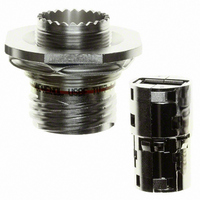USBFTV71N Amphenol PCD, USBFTV71N Datasheet - Page 59

USBFTV71N
Manufacturer Part Number
USBFTV71N
Description
CONN USB-A RCPT-RCPT JAM NUT
Manufacturer
Amphenol PCD
Series
USBF TVr
Specifications of USBFTV71N
Convert From (adapter End)
USB - A, Receptacle
Convert To (adapter End)
USB - A, Receptacle
Mounting Type
Panel Mount, Bulkhead
Features
Dust Tight, Waterproof
Connector Type
USB - A
Gender
Receptacle
Number Of Contacts
4
No. Of Contacts
4
Connector Mounting
PCB
Shell Finish
Nickel
Body Material
Metal
Data Rate Max
480Mbps
Leaded Process Compatible
Yes
Rohs Compliant
Yes
Connector Shell Back Termination
USB-A Receptacle
Lead Free Status / RoHS Status
Lead free / RoHS Compliant
Other names
APC1108
MAC Address
A unique address assigned to a station interface,
identifying that station on the network. With
Ethernet, this is the unique 48-bit station address.
Same as the physical address.
Megabit (Mb)
Megabit. One million bits of information, usually
used to express a data transfer rate; 1 Megabit/
second = 1Mbps.
Megabyte (MB)
MegaByte. A unit of data storage size which
represents one million characters of information.
Multicast
A transmission initiated by one station to many
stations of the network.
Port Mirroring
Port mirroring allows a switch port to monitor
packets from any or all of its ports so that traffic can
be analysed.
Quality of Service (QoS)
Some switches support QoS (per 802.1p and
802.1Q standards) whereby messages can be
assigned levels of priority. QoS is important where
time-critical applications can be impaired by data
delays.
RJ45
8-position modular jacks used on twisted pair links
for Ethernet cabling.
57
RJ-Field
A wide range of connectors which allow to reinforce
and seal standard RJ45 cable. See www.rjfield.com
SNMP
Simple Network Management Protocol. This is THE
standard used for switch management programs.
Spanning Tree Protocol (STP)
A link management protocol providing path
redundancy and preventing network loops by
defining a tree to span all switches in a network.
It forces redundant data paths into a standby
(blocked) state. If a path malfunction occurs, the
topology is reconfigured and the link reestablished
by activating the standby path.
TCP/IP
Transmission Control Protocol/Internet Protocol. A
set of protocols, resulting from ARPA efforts, used
by the Internet to support services such as remote
login (TELNET), file transfer (FTP) and mail (SMTP).
TELNET
The Internet standard protocol for remote login
(terminal connection) service. TELNET allows a user
at one site to interact with a remote timesharing
system at another site as if the user’s terminal were
connected directly to the remote computer.
VLAN
Virtual Local Area Network. A LAN that maps
stations on a basis other than location such as by
department, user type or application. Managing
traffic, workstations, and bandwidth can be easier
with a VLAN and improve network efficiency.















